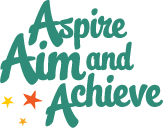Post-Primary
Introducing the Olympic and Paralympic Games
Pupils will:
- explore the background to the present day Olympic movement; and
- develop managing information skills by researching the background of the Olympic and Paralympic games;
Statutory Requirements:
Local and Global Citizenship:
Equality and social justice
Pupils should have opportunities to explore the work of non-governmental organisations that aim to promote equality and social justice.
Cross-Curricular Skills:
Using ICT
Pupils should be enabled to:
- access, select, interpret and research information from a range of digital sources; and
- use a range of contemporary digital methods to communicate, exchange and share their work.
Communication
Pupils should be enabled to:
- listen to and take part in discussions, explanations, role plays and presentations; and
- find, select and use information from a range of sources.
Thinking Skills and Personal Capabilities:
Managing Information
Pupils will select, classify, compare and evaluate information.
Working with Others
Pupils will listen actively and share opinions.
Connected Learning Opportunities:
Physical Education
Pupils should be enabled to:
- develop positive sporting behaviour and a sense of fair play;
- develop positive relationships and respect for the differing capabilities of others; and
- explore issues related to ethical awareness.
History
Pupils should have opportunities to:
- develop critical thinking skills to evaluate a range of evidence and appreciate different interpretations; and
- develop chronological awareness and the ability to make connections between historical periods, events and turning points.
Introduction
Introduce the Olympic and Paralympic Games by showing the class a selection of images of Olympic sports from the Rio 2016 official website asking if the pupils recognise them. Brainstorm how much your pupils already know about the Olympic and Paralympic Games.
Fact Finders
In this research activity pupils have to find information about the Olympic and Paralympic Games.
Divide the class into groups and give each group a research topic from the following list:
- The Ancient Olympic Games;
- The Modern Olympic Games; and
- The Paralympic Games.
Each group must research their topic using the internet. (You can find examples of useful websites in the ‘You will need’ section.) Give each group a set of specific questions to help focus their research:
Ancient Olympic Games:
- When did the ancient Olympic Games begin?
- Where did the ancient Olympic Games take place?
- What events/sports would you see at the games?
- What prize did winners at the games receive?
- What was the Olympic Truce? Why was it needed?
Modern Olympic Games
- Who founded the modern Olympic Games?
- Why did he revive the Games?
- Where did the first modern Olympic Games take place?
- How many sports/events are included in the Olympic Games today?
- How many countries take part in the Olympic Games today?
Paralympic Games
- What are the Paralympic Games?
- Why did the Paralympic Games start?
- When do the Paralympic Games take place?
- How many sports/events are included in the Paralympic Games?
- How many countries compete in the Paralympic Games?
Help your pupils to evaluate the reliability and accuracy of their information. Have the pupils come up with conflicting information?
As well as researching the questions above, each pupil must make a note of an interesting fact that they discover during their research.
The www.olympic.org website has information to help pupils complete this activity. They can find additional useful information in the Olympic Education Toolkit. See the links in the ‘You will need’ section.
In their groups, ask your pupils to discuss their research and make a list of the most important points that they have discovered. Use a variation of the ‘Each One, Teach One’ teaching strategy, by asking one member of each group to rotate around the other groups, telling them about his or her group’s findings and listening to the other groups’ information.
Interesting Facts
Ask your pupils to stand up. Then ask different pupils in the class to state their interesting fact and make a note of it. The pupil can then sit down. Ask if any other pupils had the same fact, if so, they can sit down too. Continue with this activity until all the members of the class are sitting down.
Ask your pupils to create a presentation, using PowerPoint or Movie Maker, about these facts to show during a school Olympic and Paralympic Celebration Event or assembly.
Additional Activities
Olympic Milestones
This activity may be particularly relevant in the history class.
Ask your pupils to research important events in the history of the Olympic Games. Select the events in advance for pupils to research. Choose events that help your pupils learn about the historical context of the events, for example Jesse Owens in the 1936 Berlin Olympics, the 1948 London ‘austerity’ Olympics, Cassius Clay throwing his Olympic medal into the Ohio River, or the boycotts of the 1980 and 1984 Olympics.
Ask your pupils to create a short fact sheet about the event, including images. Then, as a class, they can create an Olympics timeline to display during the Olympic and Paralympic Event.
You will need
Research Sites
Olympic Sportswww.rio2016.com
Paralympic Sportswww.rio2016.com
Olympic Gameswww.olympic.org
Ancient Olympic Gameswww.olympic.org
BBC Bitesizewww.bbc.co.uk
Paralympic Gameswww.paralympic.org
Teacher's Toolkitwww.olympic.org

